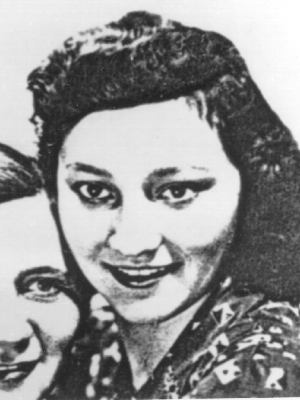
Melanie grew up in the home of her wealthy grandparents in Vrshac, Yugoslavia. Melanie's father and mother had separated soon after their marriage. Living in her grandparents' house with her mother and four uncles, Melanie was given everything she wanted. She spent her summers with her father and his mistress. Melanie's comfortable, though unusual, lifestyle was disrupted when the Germans invaded Yugoslavia when she was thirteen.
Upon the invasion, the Germans ordered all the Jews in Melanie's town to report for registration. Soon after, they confiscated her family's leather factory and forced them, along with the other Jews of Vrshac, into cattle cars and boats headed for Belgrade. The men were taken to a concentration camp outside the city. Women and children were moved into already overcrowded Jewish homes.
Melanie's mother found her former husband's mistress and begged her to save Melanie. The woman promised to help. In October 1941, the Germans began murdering the Jewish men imprisoned outside Belgrade. Melanie's father was among the victims. His mistress, however, was somehow able to convince the German authorities to let her take Melanie just before the girl was to be imprisoned in the concentration camp.
In 1943, the Nazis re-arrested those Jews they had earlier released. Melanie, fifteen, was among them. Again, her father's mistress secured Melanie's release, but on condition that Melanie convert to Christianity and marry. A match was arranged, and Melanie married a twenty-five year-old relative of the woman.
Although she was called up for forced labor a year later, Melanie survived the horrors of the Holocaust. In October 1944, the Russians invaded Yugoslavia and forced the Nazis out. Melanie no longer feared for her life. She was one of the few members of her family to live through the war. The Germans murdered all the others.

